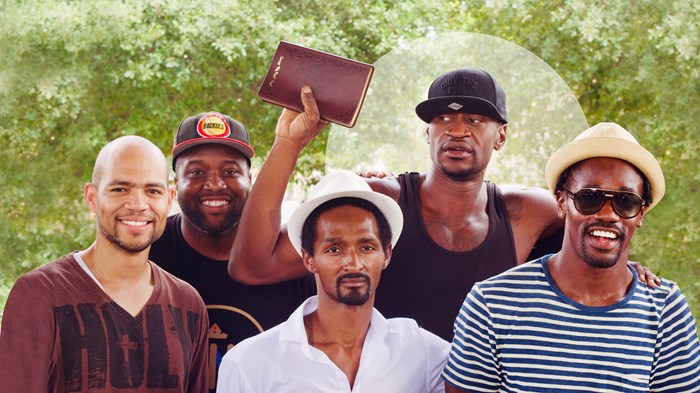"These are undoubtedly significant times, but we should not try to predict when Christ will come again. He said that. 'No one knows the day or the hour when He will come again.'
HOWEVER ...
We live in days in which miracles still happen, and God is in the process of demolishing spiritual roadblocks that have resisted the gospel for centuries. I have witnessed the enormous changes that have taken place, so I will now relate my own experiences."
James Wardroper, Senior Citizen, living in Ontario, a retired teacher, and author of "The Light-Bearer's Saga", a set of eight books recounting history from a Christian perspective from 427 AD to the present, with volumes beginning to appear in September 2020.
THE CHANGE IN THE MUSLIM WORLD
In 1951, I went with a group of young fellows to Tunisia as the guests of the North Africa Mission (N.A.M.). I met the only two known converts from Islam and both of them have suffered cruelly since. Since many billions of Muslims have lived since the time of Mohamed, only a few hundred thousand had ever become Christians. The N.A.M. had sent out 500 missionaries over 80 years and had only seen about 500 converts. Those missionaries were stalwart Christians who labored faithfully. They could not see was that they were preparing the ground for a movement they could never have imagined. After the middle of the last century, things began to change dramatically, and I have seen it personally.
In 1971, I was in Aden, South Yemen, where I met an Arab lawyer who told me how he had seen a vision of Christ. He said: “I did not imagine it, I saw Him.” In due course, he became the leader of the Christians in South Yemen.
In 1985, I traveled to East Africa via Amsterdam in the company of Dr. Lionel Gurney, the founder of the Red Sea Mission Team. We filed into the middle row of a jumbo jet. He pointed to an empty seat at the end of the row and said: “And that seat is for a Muslim.” I wondered how he could possibly predict such a thing. Before long, a black man in a long white ghalibiya came striding down the aisle. Dr. Gurney greeted him in Arabic and invited him into that seat. Then Dr. Gurney asked the Sudanese man: “Have you ever read our book?” The man was surprised. “No, we cannot get it in our country.” “Then I have one for you,” and reaching into his bag, he pulled out a New Testament in Arabic and gave it to him.
About a week later we were in Arusha, Tanzania, walking down the main street when, “Doc,” as everyone called him, suddenly spied a Muslim name over a clothing store and he dashed in. Not even pretending that he was interested in buying clothing he asked the man behind the counter, the same question: “Have you ever I read our book.”
Doc then told him that he had one for him and that we were staying at the Lutheran Guest House. Late that night, there was a knock on our door. It was the man from the clothing store. Somehow he had managed to get past two locked gates. Doc then gave him the book and prayed with him.
About another week later, we were staying at a hotel in Kigali, Uganda. Doc looked out and saw the minaret of a mosque under construction on the other side of the road. We all went over, and Doc met the young Imam, who was a Muslim missionary from Tanzania and started to talk to him in Arabic, which was the only language they had in common. Later that night the young Imam came over to our hotel and after a long talk with Doc, he said: “And now I am on your side.”
In 1987 I was again with Doc In Africa. This time we were at a
conference not far from Nairobi, Kenya. Attending that conference was a small
black man named Ali who had planted the gospel in the Comoro Islands. He told a
small group of us how it had happened. A South African had visited the hospital
where he worked. He tried to talk to Ali about the gospel, but Ali was not
interested. After the South African had gone, Ali awoke in the middle of the
night and saw a figure in white standing at the end of the bed. The figure said: “You ought to have
asked that man for a book.” That was all. So Ali did just that.
He read the book and believed. Then Ali told us a long story including how he was tortured for his faith, but as a result, there are now Christians on all the Comoro Islands.
In 1993 I read in a Christian newspaper that 500 people in Bejaia, where Ramon Lull had been martyred, had become Christians through dreams and visions of Christ. In 1985 I was at Missionsfest in Vancouver, where I met a man who lived and worked in Bejaia, and so I asked him, “What do you know about this matter?” He replied: “Oh, I know at least 50 of these people.”
(To be continued over the next four days...)






